Marvel's Guardians of the Galaxy game devs talk Star-Lord, decision-making, and 80s soundtracks
But your decisions will have an impact on the gameplay
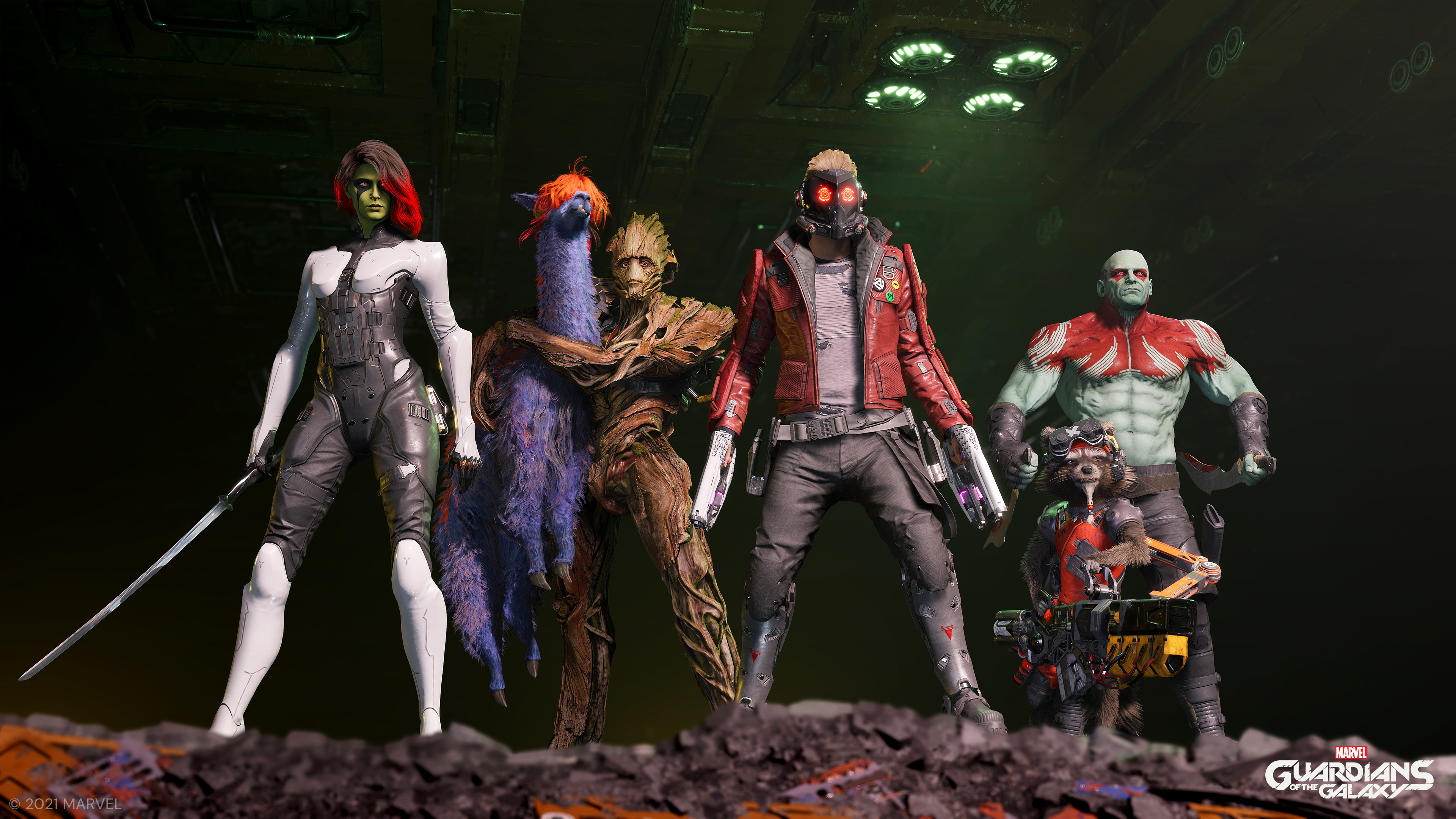
Star-Lord as a protagonist is an interesting choice. Anyone who's watched an MCU movie or dipped into a Guardians of the Galaxy comic will know Peter Quill is anything but a reliable leader. But I wonder if all that will change once you get involved... Marvel's Guardians of the Galaxy game straps players into Quill's jet boots, leading a team that's barely been established a year, and it looks like a hell of a good time.
Eidos Montreal's Guardians of the Galaxy sit in a world that's just emerged from a galactic war, but now, thanks to a bet between two of the Guardians, an accident occurs that completely snowballs, leading to a situation where the entire universe is in peril. The Guardians of the Galaxy must take responsibility and try to fix it, but as you'd expect from our bickering, bantering heroes, it doesn't quite go to plan.
Even though this story isn't connected to the MCU, or to Crystal Dynamics' Marvel's Avengers, Eidos Montreal wanted its versions of these iconic characters to feel fresh but recognizable. Both visually and narratively, the Deus Ex: Mankind Divided developer has crafted unique versions of the Guardians. And as Eidos Montreal tells us, this has given the studio the space to build a game around the team dynamic that has become so synonymous with the Guardians of the Galaxy.
"That's what led us actually to making it a single-player game, which, you know, it's not necessarily what you would expect," explains Patrick Fortier, senior gameplay director. "How do we put that tension in the team and the fact that they're so defined by the fact that they're together, this bunch of misfits, defying the odds."
Eidos Montreal debated how the game would play out, but eventually settled on having Star-Lord as the sole playable character for this third-person, single-player narrative adventure. "When we started to brainstorm, we thought about other styles of gameplay," explains Jean-Francois Dugas, senior creative director. "We were like, 'What is the best way to engage you with the Guardians?', because they're so colorful, they're so many things."
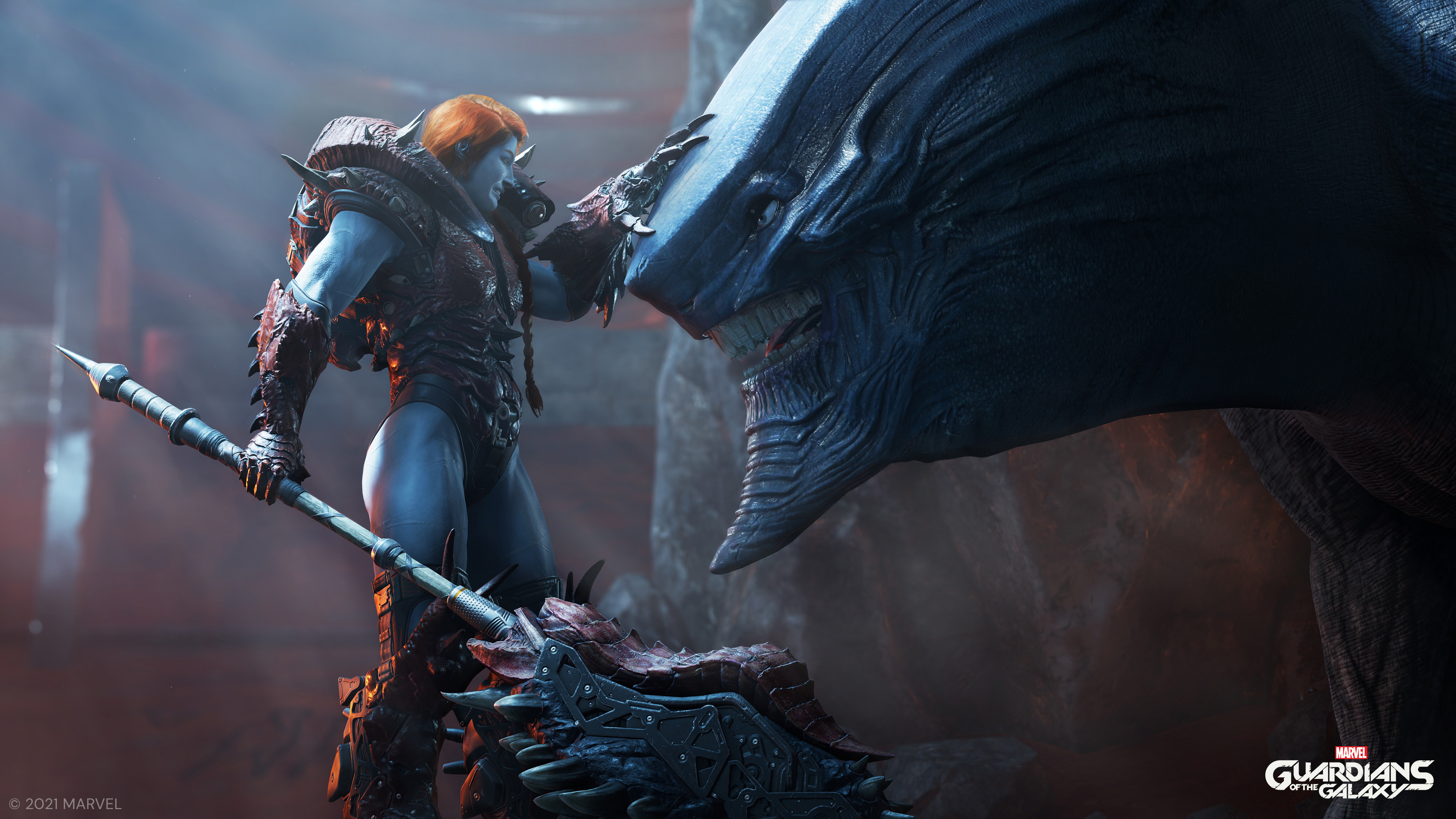
"If you only play as Peter, you experience the team more like you would in real life," says Fortier. "When you're part of the team, you don't control the team, you suffer the team. Sometimes you influence the team, sometimes two will think alike and sway you in a certain direction… that feels rich for the Guardians of the Galaxy."
"Even in combat, when the AI is driving Drax, it drives it based on his personality. He is always courageous and takes on too many enemies, and then he gets into trouble and you have to help him out. And then Gamora is on the sidelines, sometimes, and when she comes in, she's acrobatic. And so it was always about thinking about them in that way, so that they would create that bond between the players. It's like, yeah, you know, it's single-player, but it's kind of like solo team play. You feel like even though you're only controlling one character, you feel like they're present in every aspect of the game."
Weekly digests, tales from the communities you love, and more
Star Power
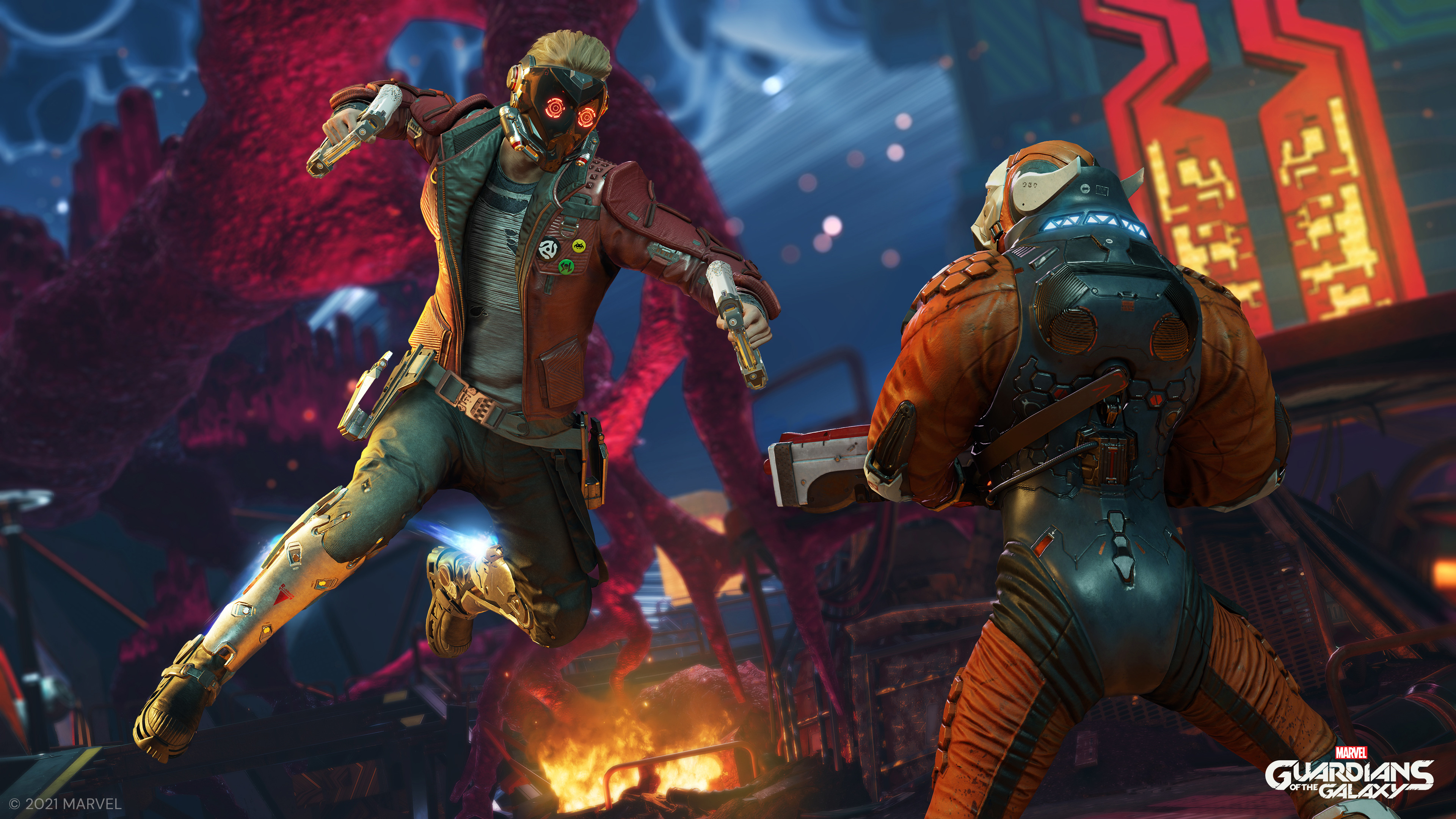
But you are playing as Star-Lord, and as the Guardians' leader, a lot of the decision-making in this game is going to come down to your approach as a player. This is a crafted, narrative experience with a singular start and end, but you'll have plenty of influence on how the events between key plot points play out.
"It's the same epic storyline for everyone," clarifies Dugas. "But the way that story's being experienced will vary from player to player."
"And the Guardians, they'll comment on that as well," adds Fortier. "So they'll remember and call you on it, maybe chapters later."
"It's the same epic storyline for everyone, but the way that story's being experience will vary"
Jean-Francois Dugas
In my Guardians of the Galaxy gameplay preview, the squad is desperately low on funds and trying to think of ways to make a quick buck. They decide to seek out a buyer of monsters, but the decision of whether the team should (temporarily) sell Rocket or Groot is yours to make and will have an impact on how the next part of the story plays out. Interestingly, the game showcased Peter originally choosing to sell Rocket – because he's a monster on the inside – but then eventually changes his mind and opts for Groot, suggesting that you may be able to renege on certain decisions, which adds a little more of a human element.
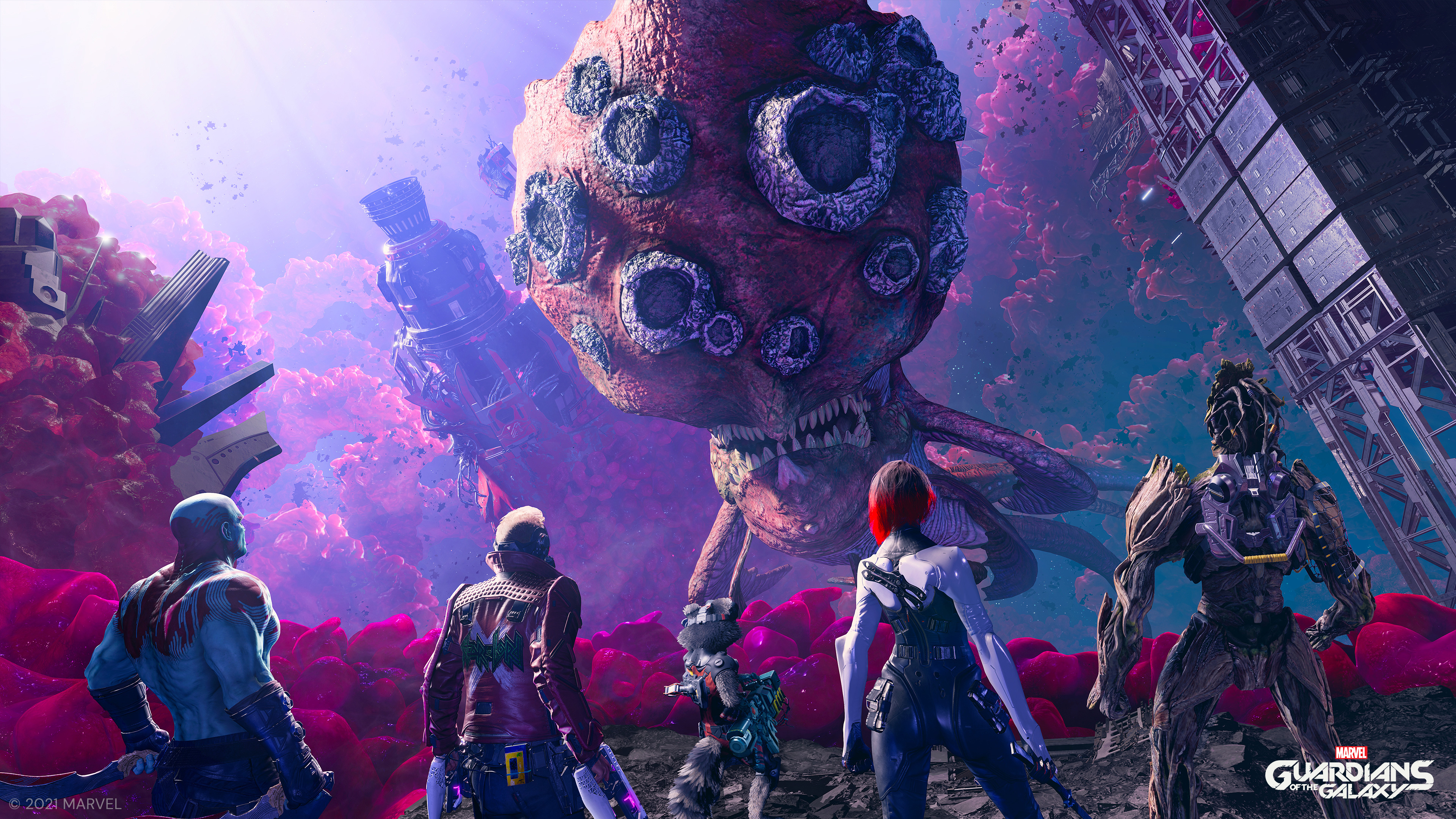
"Choice and consequence is part of the experience," explains Dugas. "You're the self-proclaimed leader, so it means you will have to make decisions, but also [the Guardians] are alive as well; they have opinions and might make decisions on their own. And you, as their so-called leader, how will you deal with that? Do you embrace the unexpected or push back? And that makes it interesting for the overall experience because you're constantly engaged in the situations."
At one point, you're faced with having to cross a chasm where the bridge is retracted. Drax suggests throwing Rocket across to access the controls on the other side, and you as Star-Lord can either let him, or attempt to find another way. So Rocket is flung across, landing with a smack and a wince from the rest of the Guardians on the other side. A Telltale-esque statement flashes up in the top left-hand corner of the screen – "Rocket is furious that you let Drax throw him". According to the developers, not all consequences will be that obvious, but some – like this – will have a greater impact on the gameplay.
"I think from our experience with Deus Ex – like it was very subtle in Deus Ex, and there's some people who really dig deep and they expose stuff. But then other people kind of miss out on it a little bit. So, [this is] a different kind of game, and a different audience, and I think we want to make it a little bit more obvious," says Fortier.
Team works
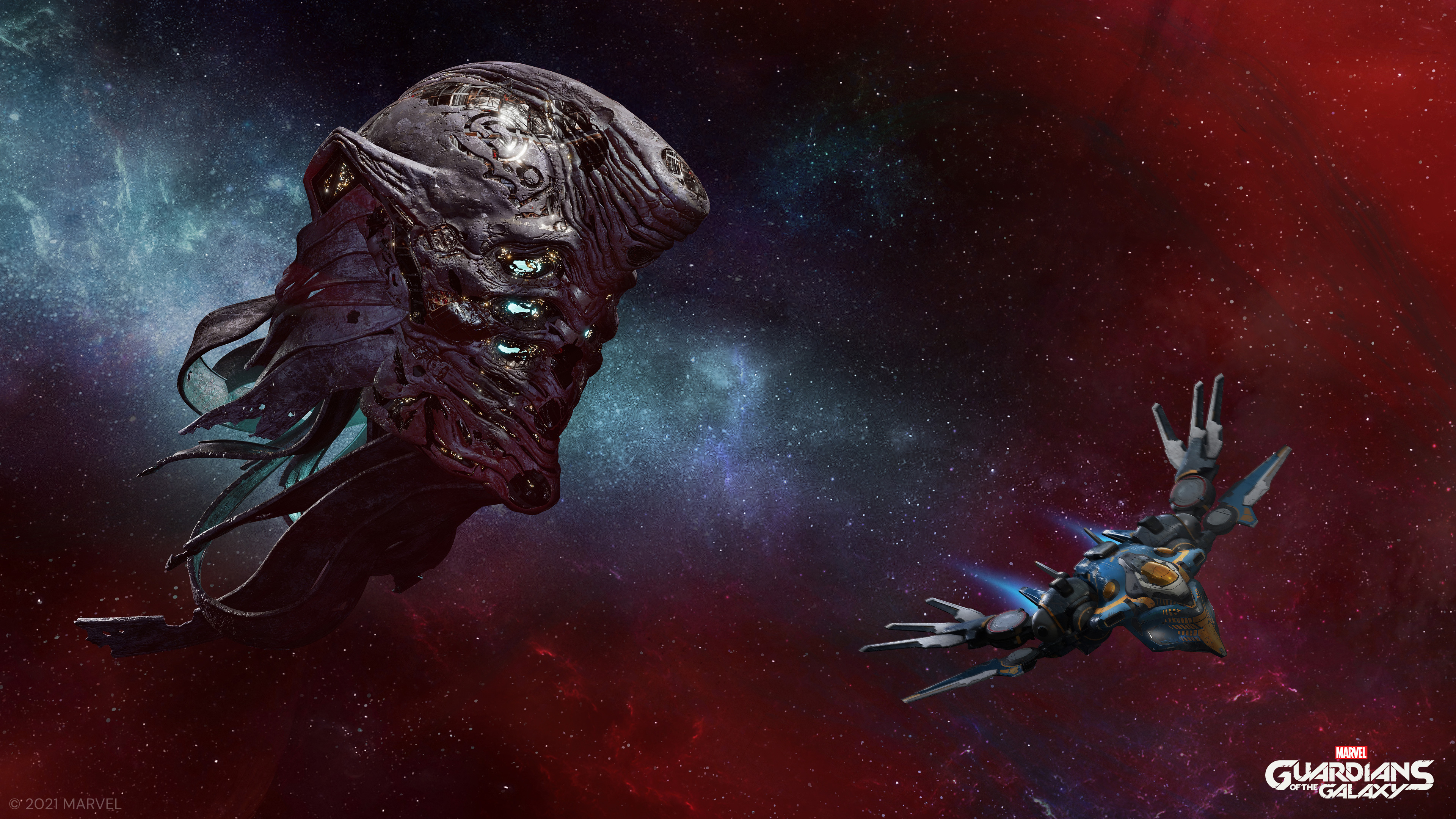
What's particularly interesting is that so many of the game's narrative ideas also extend to combat. You are only playing as Star-Lord in battle, but that idea of "solo team play" and the decision-making as the Guardians' leader is palpable here too. Whilst the Guardians are guided by AI systems to fight alongside you, Star-Lord can direct each of the Guardians to use their unique abilities on a specific enemy. Each of them has a core identity and specific strengths: Drax is a brawler capable of staggering enemies, Gamora is more of an assassin, Rocket is proficient in ranged attacks, and Groot is your defense – although Groot does have a special harness that Rocket can leap up into for a turret-style combo.
As you fight, you'll build up a momentum meter, which will accrue points that you can spend at the end of the combat to unlock new ability points for your Guardians. These allow you to craft what Eidos Montreal calls your Plan B. Each Guardian has a cooldown window after you've called on them, but another Guardian's secondary ability may be able to fill in while you regroup.
"We didn't want to go overboard with the micro-management," says Fortier. "They fight by themselves, they take on enemies, they can kill enemies by themselves – they don't need you. But, we wanted to create this synergy with them. [As Star-Lord] you're flying around on jet boots, and you're freezing people with your elemental blaster, and then you call Gamora who shatters the enemy. You have this more organic flow of combat that's just a continuation of the overall experience."
"Ultimately, you get combat that is very, very team-based. It's an ensemble thing. You see them working together as a team, as a unit, and not just like individual characters engaging in their own loop."
Plus, you can pull your leader card in a few more ways too, with an especially cinematic moment coming from a kind of team huddle. In the middle of battle, you can pause to gather the team, switch to a first-person view, and analyze how you think they're getting on. You'll have to pay attention to the overall vibe – whether things are going well or they're closer to being overrun – and choose what kind of speech will motivate them, with an appropriate '80s anthem to match. If you choose correctly, the entire team will get a boost where cooldowns are accelerated and other buffs, but if not Star-Lord will still get the perks himself because, as we all know from experience, he's a character that always thinks he's made the right choice.
"We [knew] we needed to integrate the music because it's such a big part. It's actually a symbolic reflection of Peter's last link to his childhood, and Earth, and all of that. So it's super fun because it's all these songs from the '80s, but it actually means something to the character as well," says Fortier.
You should expect to see a diverse range of music to feature in the game's '80s soundtrack too, from Pat Benatar and Wham! to Iron Maiden and Joan Jett. Eidos Montreal teases that these little huddles aren't the only way the music will have an impact on the game either, just as you'd hope from a Guardians of the Galaxy game.
Just Marvel-lous

It's just indicative of how much fun the team has had making their own version of these iconic characters, but also how much respect they have for the source material. Even in this early look at the game it's easy to see the little touches Eidos Montreal has added to inject additional personality and humor into the game, its world(s), and its characters. For example, Rocket has a little Groot-shaped bead in his goatee, and on the game's start screen you can see Groot drinking from a water can. All of the game's collectibles are tangibly connected to each of the Guardians too, and interacting with them on the Milano will unlock additional dialogue for enhanced connections within the team. It'll be interesting to see how those sorts of details highlight the uniqueness of Eidos Montreal's take on the Guardians compared to comic and movie versions.
"Even for us, with our heritage, this is very different to what we've done before," explains Fortier. "It was very clear from the very, very first meeting [with Marvel], they were like 'Guys, this is all about your version of the Guardians of the Galaxy'. It's the same approach that they have with their comic book teams, when they bring in a creative turn and they want their vision for when they have a run, and that's what they wanted from us."
You'll be able to understand exactly what that means in a few short months when Marvel's Guardians of the Galaxy launches on October 26, 2021 on PS5, PS4, Xbox Series X, Xbox One, and PC. I certainly can't wait to see more of Star-Lord and the Guardians' antics.
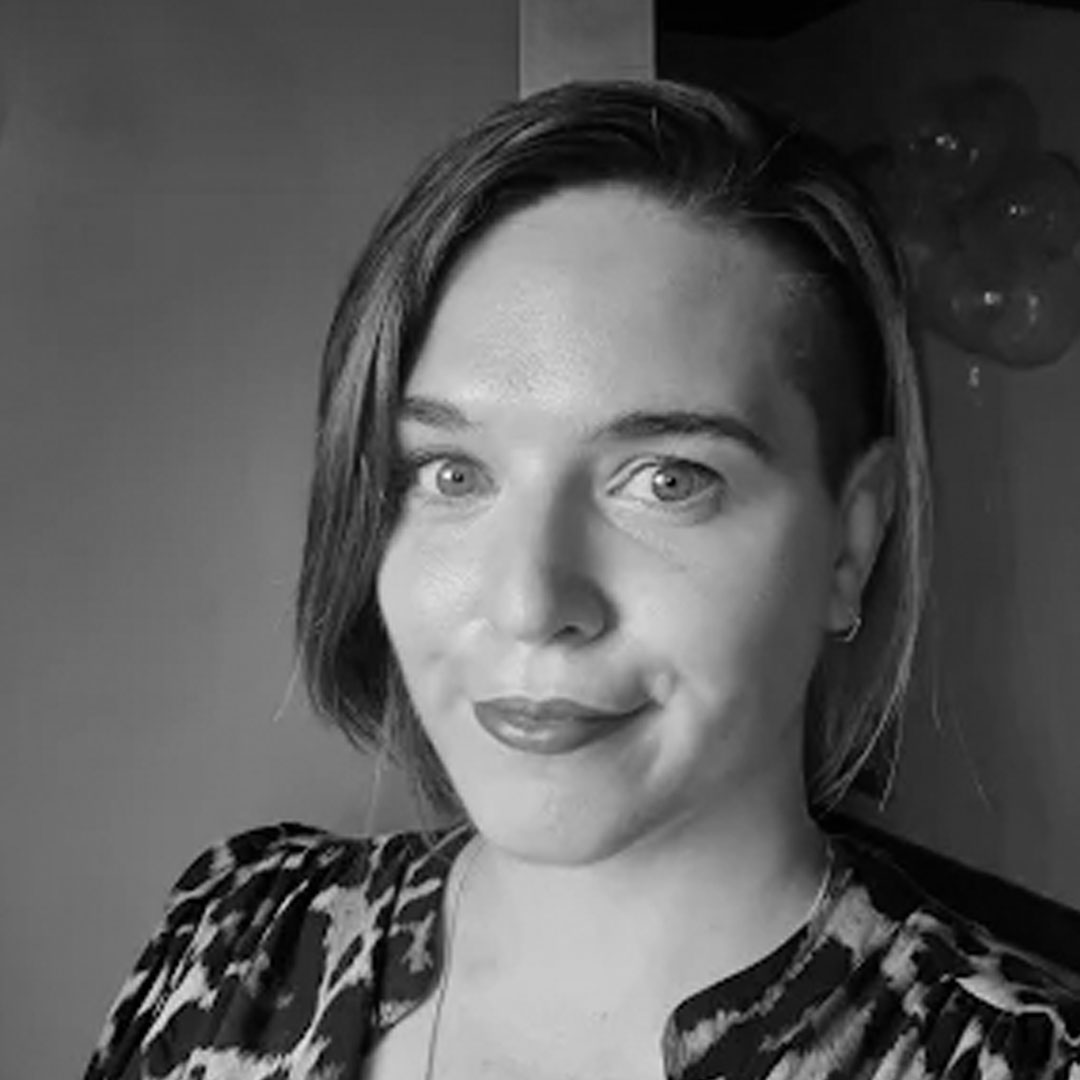
Sam Loveridge is the Brand Director and former Global Editor-in-Chief of GamesRadar. She joined the team in August 2017. Sam came to GamesRadar after working at TrustedReviews, Digital Spy, and Fandom, following the completion of an MA in Journalism. In her time, she's also had appearances on The Guardian, BBC, and more. Her experience has seen her cover console and PC games, along with gaming hardware, for a decade, and for GamesRadar, she's in charge of the site's overall direction, managing the team, and making sure it's the best it can be. Her gaming passions lie with weird simulation games, big open-world RPGs, and beautifully crafted indies. She plays across all platforms, and specializes in titles like Pokemon, Assassin's Creed, The Sims, and more. Basically, she loves all games that aren't sports or fighting titles! In her spare time, Sam likes to live like Stardew Valley by cooking and baking, growing vegetables, and enjoying life in the countryside.


